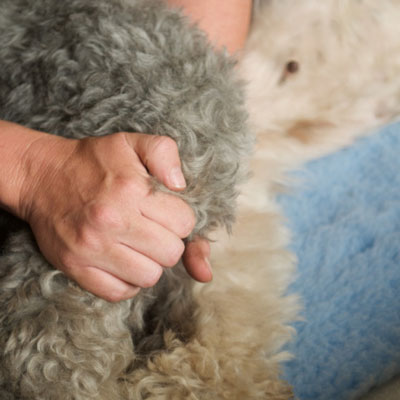Your dog may have tired muscles from running, fetching, play, trauma and overuse or has sustained a muscle injury (commonly a strain) or Myofascial pain, or the result of a history of viral infections.
Living an active lifestyle “as most dogs do” can cause strains and tears to overworked muscles and tissues. Likely when our dog engages in sudden activities and repetitive behaviors such as jumping, twisting, hard braking to fetch a toy, jumping in and out of the car or bed, excessive running – all of which place strain on their body parts.
Myalgia, cramps and spasms can be used to describe muscle pain and can be discomforting to your dog. The pain can last just a few days or much longer, ranging from mild to excruciating – depending on where the muscle is located in the body and what the underlying condition.
Signs of muscular pain include:
- Lameness
- Yelping/crying out
- Twitching of the skin
- Cramps
- Spasms
- Looking miserable
- Change in feeding
- Change in gait or posture
Improvements include:
- Reduced spasms or cramps
- Enhanced performance and reduced fatigue in working dogs
- Reduced or resolved stiffness or soreness
- Improved movement/gait
- Improved posture
- Happier character
- Increased activity levels
- Willing to be petted / groomed / examined


